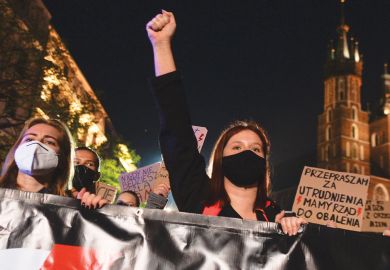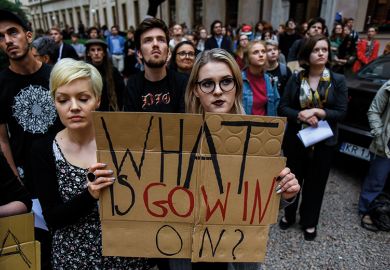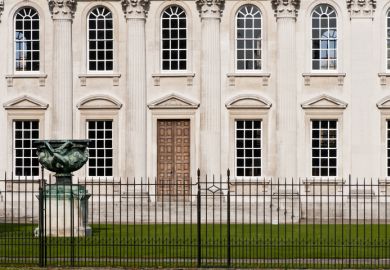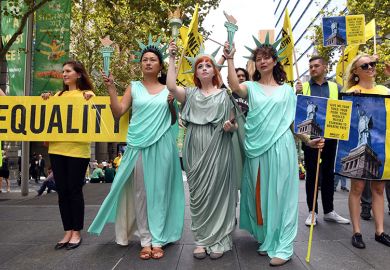The new academic year in Gdansk began on a joyous note last month as, for the first time, hundreds of students, researchers and university staff paraded through the streets to celebrate scholarly values.
As the bells of the Baltic port rang out, the march made its way to the ancient tower in Gdansk’s Old Town, where university leaders representing some 80,000 students made speeches. Each of them insisted on the absolute necessity of independence of thought and free speech at the three members of the Fahrenheit Union (named after physicist Daniel Fahrenheit, who was born in Gdansk in 1686). Science and scholarship could not flourish, explained one, in the face of “ideological pressures”. The message from what are some of Poland’s most important universities could not have been clearer.
For all the pomp of these celebrations, however, the afternoon symposium and drinks reception may have been more symbolic: it was held at the European Solidarity Centre in the Gdansk Shipyard, birthplace of the Solidarity trade union, whose leader, Lech Walesa, spearheaded the country’s journey towards democracy in the 1980s and became its first elected president in 1990.
The right-wing Law and Justice Party government has been trying for years to discredit Walesa. There is even a historical venue near the European Solidarity Centre where alternative historical displays ignore the pivotal role Walesa played in leading hundreds of thousands of strikers to demand better working conditions in August 1980. Instead, Law and Justice Party founders the Kaczynski brothers – including Jaroslaw Kaczynski, the party’s current leader – feature as the main heroes.
The choice of venue was a subtle but significant rebuke to a deeply conservative government that has sought to impose regressive policies on universities. For instance, a year ago, the education ministry published a much-ridiculed statement that education must cultivate traditional feminine virtues, such as housekeeping and childbearing.
Poland remains the only country in Europe in which abortion is illegal, and the role of women is under continuous scrutiny despite there being many powerful women at universities and up and down the country. Only last week, one of the main opposition newspapers, Wyborcza, ran an article about a young woman being refused an abortion despite her embryo not having a skull. On her way to Amsterdam, she almost haemorrhaged to death and was given emergency treatment in Germany.
Discussion of these issues remains difficult. A few weeks ago, at the University of Gdansk, I organised an international conference called Visible Evidence, an annual global meeting for documentary film studies scholars and practitioners that was held in the old Eastern Europe for the first time this year. It concluded with a screening of the controversial 2019 documentary Hail Satan by the American director Penny Lane, an acclaimed profile of how a group of pranksters-turned-Satanists who, among other things, have sought to challenge abortion rules in several American states. A senior Polish academic, who was a member of the organising team, left the screening after 15 minutes. A colleague, sitting next to me, whispered: “He is leaving so that if you get into difficulty, he will simply say he knew nothing of it. He is patriarchal and clearly disapproves.”
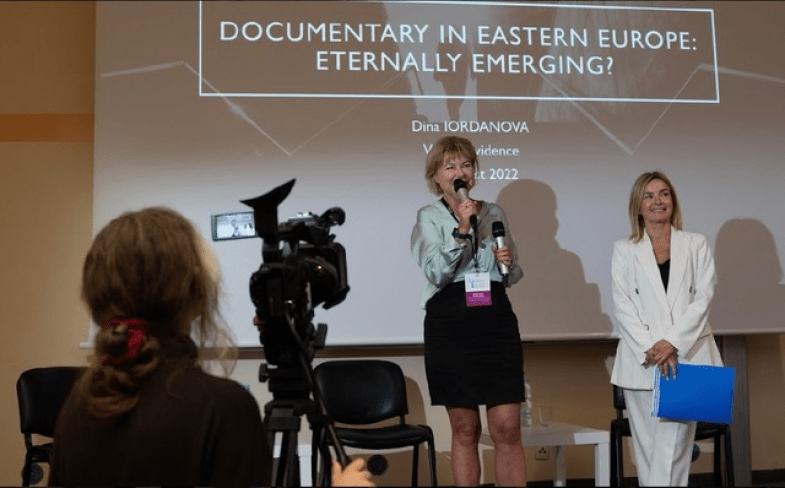
Luckily, there were no apparent repercussions, although one does not know what might have happened if the event had not flown under the radar of the Polish media. Would Fahrenheit Union leaders have rushed to defend the screening on the grounds of academic freedom? Decades of communist rule and almost 10 years of the current populist regime have affected the way many people think and conduct themselves.
Having researched Zimbabwean politics for many years, I was sometimes told that the authoritarian regime there left both potholes in the roads and potholes in people’s psyches. There are no potholes in the chic streets of Gdansk or the thoroughfares of the University of Gdansk’s elegant modern campus, but not everybody supports progressive and radical thinking. And even those who support it are not always willing to say so.
And yet, during his speech at the opening of the academic year, Gdansk’s rector, Piotr Stepnowski, heralded the importance of diversity within his university. Its pro rector for international engagement, Anna Jurkowska-Zeidler, told the Visible Evidence conference last summer that – in an apparent reference to traditionalist trends in Poland – women globally were “heroes”. These are important gestures.
Let’s hope Gdansk’s celebrations of academic values take place every year. It is not just bold speeches but deeds that are needed to secure the open and fearless debate so necessary for academic research in any country.
Agnieszka Piotrowska is an associate professor in the Manchester School of Art at Manchester Metropolitan University. She is also a visiting research professor of film and cultural studies at the University of Gdansk.
Register to continue
Why register?
- Registration is free and only takes a moment
- Once registered, you can read 3 articles a month
- Sign up for our newsletter
Subscribe
Or subscribe for unlimited access to:
- Unlimited access to news, views, insights & reviews
- Digital editions
- Digital access to THE’s university and college rankings analysis
Already registered or a current subscriber? Login


